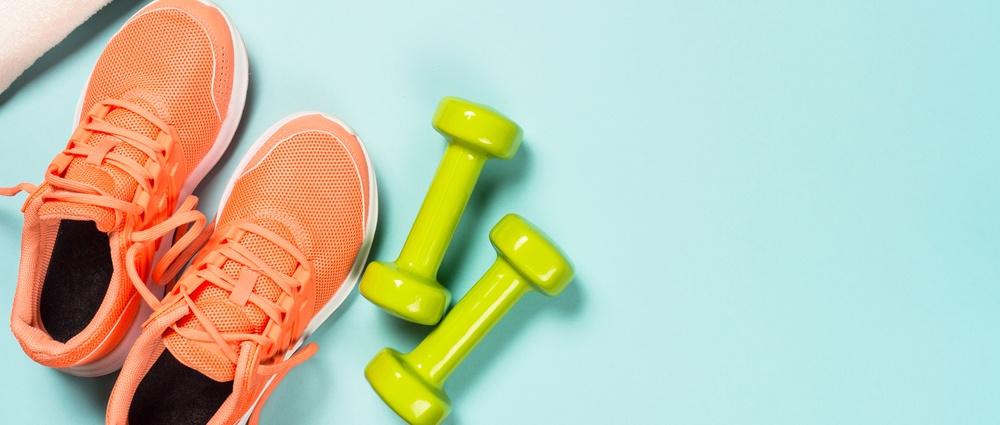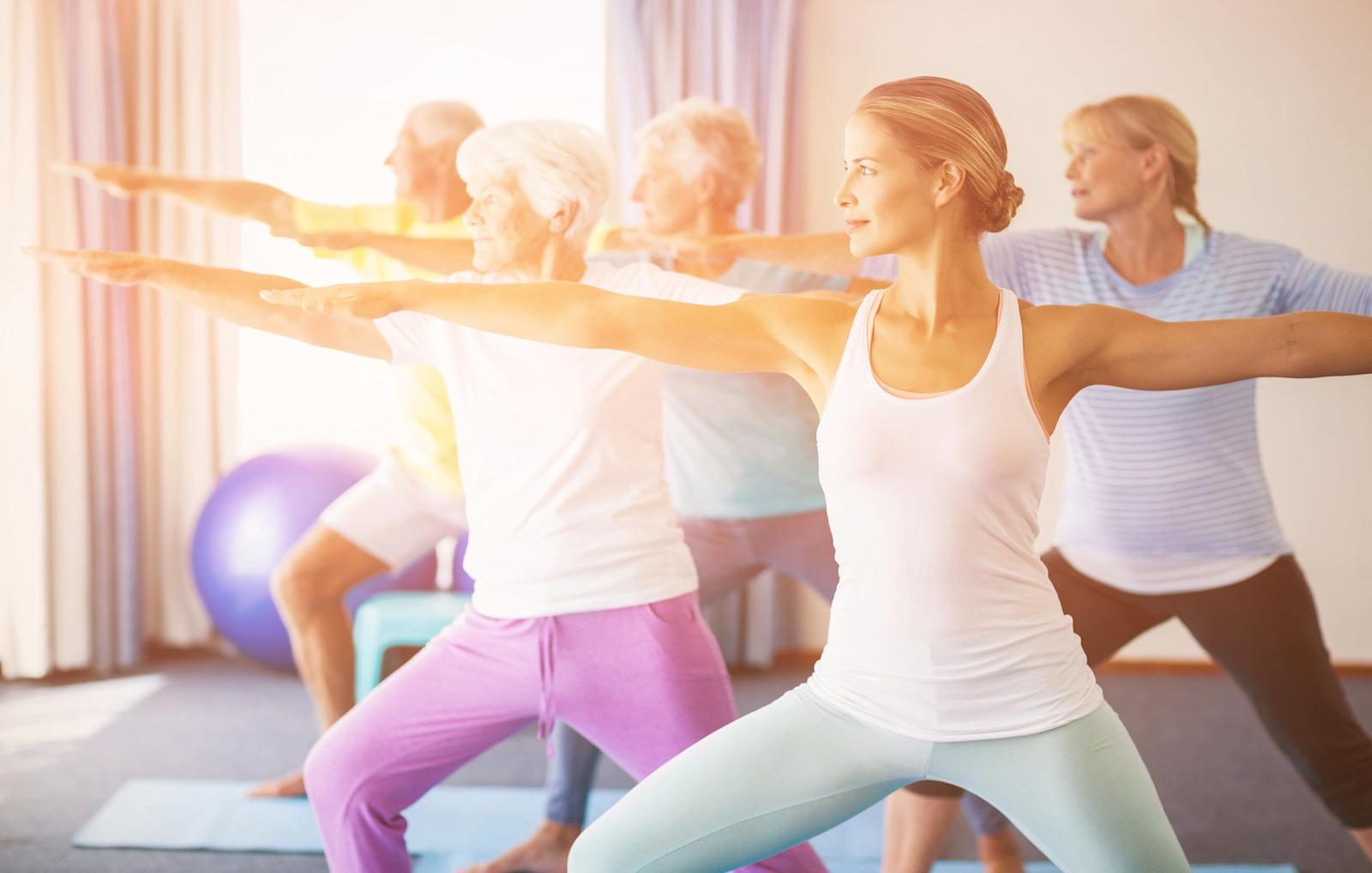
¿Cuáles son los beneficios del ejercicio a largo plazo?
Peer reviewed by Dr Colin Tidy, MRCGPLast updated by Lynn StephenLast updated 21 Sept 2025
Satisface las necesidades del paciente directrices editoriales
- DescargarDescargar
- Compartir
- Idioma
- Debate
Staying active helps us to improve our flexibility, weight management, and mental health - and its effects can be seen almost immediately. But doing regular exercise also helps you stay healthier for longer in later life.
En este artículo:
It's no secret we are spending an increasing amount of time sitting down. As technology advances, our screen time increases. This time may be spent on our phones, looking at our work screens, or watching television. It's not surprising the average person is sitting down for 9 to 10 hours a day.
As we age, our bones become weaker as their density decreases. Our hearts have to work harder as our blood vessels stiffen, and our metabolisms slow down. This increases the likelihood of weight gain and certain health conditions.
Although there are few ways to avoid our work screens, it is likely you are able to counteract or delay these health issues, simply by staying active.
An American Cancer Society study found a link between long periods of leisure time sitting and a higher chance of death caused by heart disease, high blood pressure, high cholesterol, and type 2 diabetes. Making sure we get more activity into our lives - even light activity - could help us live for longer.
Seguir leyendo
Muévete
The majority of advice for staying active, especially if you are new to exercise, is to move more. This needn't be running marathons or attending every Zumba class you can find. It's as much about increasing your activity on a day-to-day basis simply by taking walks after dinner, squatting whilst brushing your teeth or just getting some extra steps in whilst you wait for the kettle to boil.
James Robinson, personal trainer of more than 10 years says that we should take any opportunity to strengthen our cardiovascular system.
"I see people parking as close to the gym entrance as possible, to walk on a treadmill for 30 minutes."
He explains that increasing your non-exercise tasks, such as taking the stairs instead of the escalator, parking further away from the entrance of the supermarket or taking short breaks to walk around your office, are great ways to incorporate more activity. These will help strengthen your cardiovascular system and reduce your chance of many health conditions further down the line.
James adds that through exercise, we learn about our bodies. He has, on occasion, found his clients have discovered a number of pre-existing conditions through exercising, including hypermobility and anaemia.
He says: "Exercising is a great way of understanding your body, its capabilities and its limits. By educating ourselves, we are hopefully able to address any issues and live longer, healthier lives. It is never too late to start and it's possible to improve your fitness by increasing your physical activity at any age."
Fortalecimiento de las articulaciones
In addition to increasing your day-to-day activity, including certain exercises in your workouts can strengthen the muscles that protect and support your joints.
This is especially important for those who have joint pain, stiffness and arthritis. Contrary to popular belief, avoiding exercise due to joint pain can actually lead to muscles becoming weaker, therefore causing more pain when moving joints. Arthritis Action advises it is vital to stay active or increase your level of activity to help reduce pain and improve joint movement.
Appropriate strength training - using weight to gradually build muscle - is particularly beneficial, and can range from body weight exercises to incorporating additional weights such as dumbbells and kettlebells.
Seguir leyendo
Beneficios psicológicos
As beneficial as exercise is to your body in the long term, it can also be helpful to your mental health in a number of ways. Mental Health charity, Mind, reports there have been many studies, which show physical activity can improve mental health.
Some of the psychological benefits of exercise include:
Better mood - there are a number of feel-good chemicals your body releases when you exercise, improving your outlook and making you feel happier. Not only this, but it is likely you will feel more energised after your workout than you did before, setting you up well for a productive day.
Managing stress and anxiety - exercise doesn't just produce feel-good hormones, it can also help lower the levels of stress-related hormones in your body. Therefore, it goes without saying, less of these hormones should help alleviate feelings of stress and anxiety.
Better sleep - naturally, being happier and having lower levels of stress and anxiety should aid with your sleep quality. Most people should avoid strenuous workouts later on in the evening. However, yoga and stretching can help you relax and unwind for a better night's rest.
Aunque son muchas las presiones a las que todos nos enfrentamos en la vida, unos sencillos cambios en el estilo de vida pueden contrarrestar el inevitable tiempo que pasará sentado sin hacer nada. Puede que al principio sólo le reporten pequeños beneficios, pero su cuerpo y su mente le agradecerán su tiempo y su esfuerzo cuando consiga mantenerse sano y activo hasta bien entrada la vejez.
Selecciones de pacientes para Ejercicio y actividad física

Vida sana
Por qué sentarse arruina nuestra salud y cómo 22 minutos de ejercicio pueden ayudarnos
Para muchos de nosotros, una jornada laboral implica pasar varias horas seguidas sentados frente al ordenador, lo que tiene graves consecuencias para nuestra salud. Pero las investigaciones sugieren que 22 minutos de ejercicio moderado a intenso al día pueden reducir los efectos negativos para la salud de un estilo de vida sedentario.
por Victoria Raw

Huesos, articulaciones y músculos
Los mejores ejercicios para las articulaciones
Es posible que le preocupe el impacto del ejercicio sobre las articulaciones, sobre todo si ya padece dolor o rigidez articular. Sin embargo, la actividad física regular puede ser útil para proteger unas articulaciones sanas e incluso para aliviar el dolor articular en algunos casos. La clave está en elegir ejercicios de bajo impacto, que mejoren la flexibilidad y fortalezcan los músculos que rodean las articulaciones. Laura Williams, experta en fitness, nos explica cuáles son los mejores ejercicios para las articulaciones.
por Heather Ainsworth
Seguir leyendo
Historia del artículo
La información de esta página ha sido revisada por médicos cualificados.
Próxima revisión prevista: 21 de septiembre 2028
21 Sept 2025 | Última versión
16 Feb 2020 | Publicado originalmente
Autores:
Priya Patel

Pregunte, comparta, conecte.
Explore debates, formule preguntas y comparta experiencias sobre cientos de temas de salud.

¿Se encuentra mal?
Evalúe sus síntomas en línea de forma gratuita
Suscríbase al boletín informativo para pacientes.
Tu dosis semanal de consejos de salud claros y fiables, redactados para ayudarte a sentirte informado, seguro y en control.
Al suscribirte, aceptas nuestra Política de privacidad. Puedes darte de baja en cualquier momento. Nunca vendemos tus datos.